detail profile monte hale
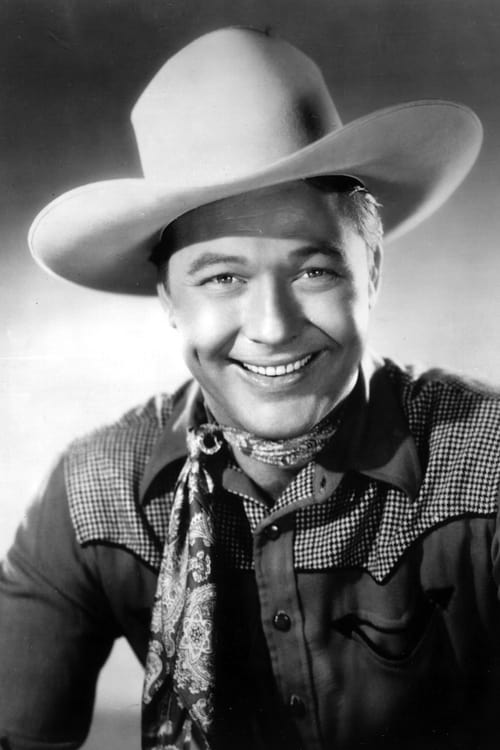
Riwayat Hidup
Monte Hale (born Samuel Buren Ely) was an American B-Western film star and country musician.
Sometimes reported to have been born in San Angelo, Texas, he was actually born in Ada, Oklahoma but grew up in Shawnee, Oklahoma, attending Washington Grade School and Shawnee High School.
(Texas birthplace reportedly sounded better for the movies).
After working as a laborer at various jobs in Ada and Enid OK Herod Ely settled in Shawnee and became an evangelist with the Church of God.
His oldest son, Buren, was known to use his musical talent during his father's services.
The boy had gathered pecans and picked cotton to earn money to buy his first guitar.
Soon he was singing and playing the guitar wherever he could find an audience.
His parents had divorced and both had remarried with youngest brother Bobby going with his mother.
In 1934, 16-year-old Buren left home as many boys did during the Depressions.
He headed for Houston and found work playing his music.
From there he went to Albuquerque working on a radio station.
A man there convinced him to head to California but all he was able to do there was scratch together a small band and play at a winter resort dude ranch.
After four years he returned to with the Texas Vaudeville and local rodeo shows.
During World War II he got a job as a replacement guitarist with the Stars Over Texas Bond Drive joining several Republic Pictures celebrities and staff.
This introduced him to western stars like Chill Wills and convinced Phil Isley to recommended him to Herbert Yates, head of Republic Pictures.
Yates agreed to "test" him but he must fund his own trip.
Some friends gave him $200 and he flew to Los Angeles.
It was 1944 and he signed with the company for seven years and changed his name from Buren Ely to "Monte Hale".
He soon starred in his first major role in Home on the Range.
He appeared in some of the first westerns filmed in color and was given use of Roy Rogers' musical sidekicks, the "Sons of the Pioneers" for one of his movies.
He was often cast as a young cowboy with cameos by Don Barry, Allen Lane and Roy Rogers and Dale Evans.
Hale then played more traditional Western heroes in films set in the late 19th century.
By 1947 the formula was set with Paul Hurst joining the series as Hale's sidekick and Riders of the Purple Sage providing the music.
At this point he ceased playing the character named for himself.
Hale was also a recording star and appeared in a series of Western comics published by Fawcett Comics.
Beginning in 1948 Hale had his own title with more than 50 issues.
In fact, his comic book stardom lasted longer than his film stardom.
Republic began cutting back on the Western genre moving to television.
He finished his Republic contract with an appearance in the Roy Rogers-Dale Evans movies Trail of Robin Hood with fellow Republic stars Rex Allen and Rocky Lane.
Hale made many public appearances at rodeos and other Western shows.
He played a villain role in the 1954's Yukon Vengeance.
His last movie appearance was in Giant in 1956, where part of his job was to teach James Dean to use a lariat.
He appeared in a few television roles and movies up until 1966.
On November 12, 2004, for his work in movies, he received a star on the Hollywood Walk of Fame.
He was also instrumental in the foundation of what is now the Autry National Center of the American West.
Info Pribadi
Peran Yang Di Mainkan Monte Hale
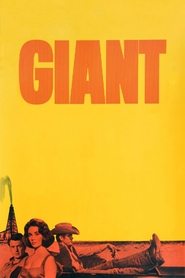 Wealthy rancher Bick Benedict and dirtpoor...
Wealthy rancher Bick Benedict and dirtpoor...Giant 1956
Wealthy rancher Bick Benedict and dirt-poor cowboy Jett Rink both woo Leslie Lynnton, a beautiful young woman from Maryland who is new to Texas. She marries Benedict, but she is shocked by the racial bigotry of the White Texans against the local people of Mexican descent. Rink discovers oil on a small plot of land, and while he uses his vast, new wealth to buy all the land surrounding the Benedict ranch, the Benedict's disagreement over prejudice fuels conflict that runs across generations.
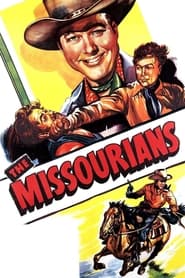 In the little town of Dorado...
In the little town of Dorado...The Missourians 1950
In the little town of Dorado, widely known as a town with no crime and no bank to rob, young Polish-born Steve Kovacs is fighting a two-edged sword of prejudice; his foreign birth and also the fact that his brother, Nick Kovacs, is the leader of an outlaw gang known as The Missourians.
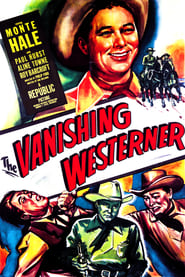 Posing as wanted men Chris and...
Posing as wanted men Chris and...The Vanishing Westerner 1950
Posing as wanted men, Chris and Waldorf get hired by Sanderson. He sends them to kill the Sheriff but puts blanks in their guns. When they arrive someone else shoots the Sheriff and Chris is blamed and jailed. The Sheriff's brother then incites the mob to hang Chris.
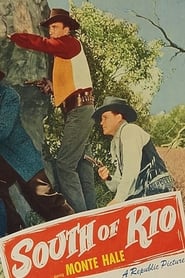 The town of Rio Blanco is...
The town of Rio Blanco is...South of Rio 1949
The town of Rio Blanco is the center of a fight over the statehood issue and is a perfect setup for Lon Bryson and Chuck Bowers, who organize a couple of phony protection associations. Opposing them is Henry Waterman, publisher of the Rio Blanco Herald. He and his assistant, Andrew Jackson Weems, send for the help of the Territorial Rangers. One of the dispatched Rangers is Jeff Lanning who, unknown to him, has a brother as a member of the gang under an assumed name of Bob Mitchell. Jeff is so shocked at seeing his brother gun down Waterman that he is unable to act in time to prevent it. Unable to explain the cause of is inaction, he is suspended by the governor. Unable to persuade his brother to quit the gang, Jeff, with the aid of Weems and Waterman's daughter Carol, begins his quest to bring the outlaws to justice.
 Legendary lawman Pat Garrett wins the...
Legendary lawman Pat Garrett wins the...Outcasts of the Trail 1949
Legendary lawman Pat Garrett wins the Fourth of July buckboard race in a small Nevada town against the unscrupulous Fred Smith and pretty Lavinia White. Lavinia blames Garrett for sending her father Ivory White to jail for robbing 100,000 dollars. White, who has stashed the loot away someplace, is about to be released and plans to return the money to the express office for the sake of his children, Lavinia and Chad. Nasty Jim Judd forces Lavinia to help him rob the coach carrying Ivory and the money, counting on the fact that White will keep quiet for his daughter's sake.
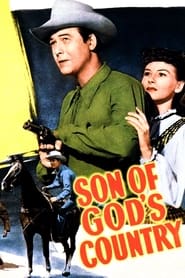 Bill Sanger has his men out...
Bill Sanger has his men out...Son of God’s Country 1948
Bill Sanger has his men out raiding and killing to obtain the ranches along the route that he knows the new railroad will use. He then kills the editor that received a letter that would expose him. But the editor earlier hid the letter in a chamber of his gun. Marshal Monte Hale arrives and eventually suspects Sanger and breaks into his house. After a gungight Sanger catches him and with one shot left shoots Monte. But he is using the editor's gun.
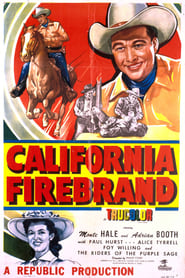 Directed by Philip Ford in 1948 When...
Directed by Philip Ford in 1948 When...California Firebrand 1948
Directed by Philip Ford in 1948. When cowboy Monte Hale (Monte Hale) returns home to investigate his uncle's murder, he's mistaken for a fierce outlaw and is hired by the town's corrupt mayor, Lance Dawson (Douglas Evans), as the new sheriff. But Monte secretly works to undermine Dawson's land-grabbing schemes. Monte defends the feisty owner (Lorna Gray) of a gold mine that Dawson covets, although she is suspicious of the cowpoke's loyalties and demands that he prove himself.
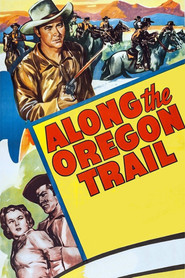 The period is the 1840s and...
The period is the 1840s and...Along the Oregon Trail 1947
The period is the 1840's and Greg Thurston is out to establish his own empire out of a large area of the west. He needs rifles to give to the Indians but Monte Hale breaks up his attack on the supply train. But when they get them by robbing the warehouse, Monte suspects Thuston who had the other key. He follows Thurston only to be caught by him just as Thurston launches his final big attack.
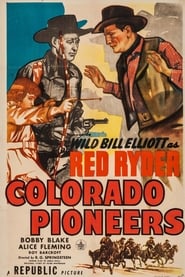 An interesting entry in Republic Pictures...
An interesting entry in Republic Pictures...Colorado Pioneers 1945
An interesting entry in Republic Pictures' long-running "Red Ryder" B-Western series, this film is not about hardy settlers braving the Colorado winters, as the title would suggest. Instead it's a sort of Reform School Western about a couple of wayward Chicago boys (Billy Cummings and Freddie Chapman) taken in by Ryder's indomitable aunt, "The Duchess" (Alice Fleming.) The boys escaped their very own "Fagin," Bull Reagan (Roy Barcroft), and were given a second chance on the lady's Western ranch. Unfortunately, Reagan returns to do a bit of cattle rustling, once again luring the boys into becoming his accomplices.
 Sunset returns to find the CarsonSterling...
Sunset returns to find the CarsonSterling...Rough Riders of Cheyenne 1945
Sunset returns to find the Carson-Sterling feud still going. Sterling has been killed and it's not long before Andrew Carson is murdered. To end the feud Sunset challenges Martin Sterling to a shootout. Unknown to Sunset, Martin's sister Melinda has waylaid her brother and now appears for the shootout disguised in her brother's clothes.
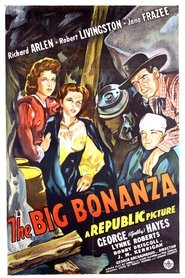 Having been falsely court marshaled for...
Having been falsely court marshaled for...The Big Bonanza 1944
Having been falsely court marshaled for cowardice and sentenced to prison by the Army, Jed Kilton escapes and heads to Nevada Springs to see his kid brother. There he meets his old school friend Sam Ballou. But the two old friends soon find themselves on opposite sides and Sam has Jed arrested. Then when Jed's young brother sees one of Sam's men kill another man, the boy becomes Sam's intended victim.
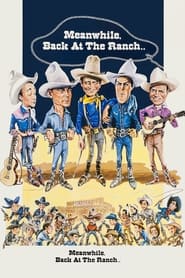 A Westerngenre narrative loosely woven from...
A Westerngenre narrative loosely woven from...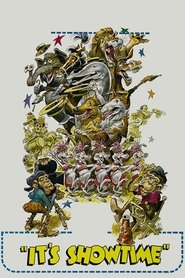 A collection of film clips profiling...
A collection of film clips profiling...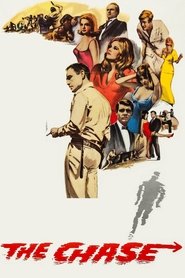 The escape of Bubber Reeves from...
The escape of Bubber Reeves from... Retired actor Jack Holt is raising...
Retired actor Jack Holt is raising...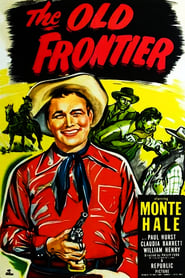 Monte Hale is cast as town...
Monte Hale is cast as town...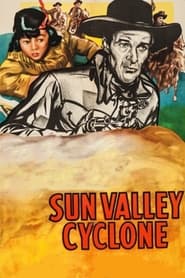 In this western Red Ryder rounds...
In this western Red Ryder rounds...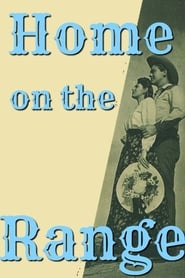 Two brothers settle a wilderness one...
Two brothers settle a wilderness one...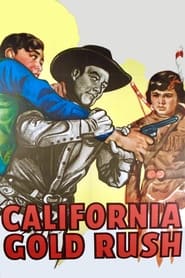 California Gold Rush is set in 1849...
California Gold Rush is set in 1849...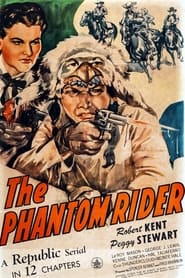 A new town doctor arrives at...
A new town doctor arrives at...